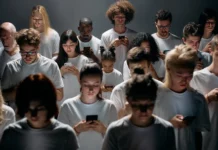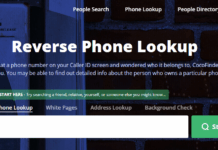
Technology and theology may seem like distinct fields at first glance, but look a little closer and you’ll see they intersect in complex and consequential ways. Theology, in the broadest sense, grapples with the meaning and purpose behind existence.
Technology refers to the practical application of knowledge to invent and problem-solve. With the rapid pace of technological change in areas like artificial intelligence, robotics, and social media, theologians and technologists alike are recognizing the need for deeper analysis, discernment, and dialogue.
Enter the framework of “woke theology.” Woke theologies challenge systems of oppression and center the experiences of marginalized communities.
So what happens when woke theologies engage with the technological realities shaping our world? There are no easy answers, but one thing is clear – this intersection raises profound modern challenges to the Christian faith about what it means to live faithfully in a technological age.
Technology Shaping Theology
The influence of technology on religious beliefs and practices is nothing new, but digital innovations are catalyzing change at an unprecedented pace and scale.
Even before the pandemic, churches were adopting online platforms for community building, outreach, and virtual worship. But over the last few years, the growth of online religion has accelerated dramatically.
Entire church services, from prelude to benediction, can now happen over livestream or video conference. Small groups and Bible studies thrive on Zoom. Congregants connect through social media, text chains, and smartphone apps. For many churches, a digital presence is now just as essential as a physical building.
Beyond online worship, some churches are exploring the use of chatbot priests and AI-generated sermons. Machine learning techniques can analyze a minister’s existing sermons to produce new ones mimicking their style.
While still in its infancy, this technology raises interesting questions about the automation of pastoral care and teaching. Supporters believe AI assistance can help spread the Gospel, while critics warn of over-reliance on technology over human relationships.
Theological education has also been affected. Seminaries now offer degree programs with online components, and AI tutoring apps provide supplementary support. Some predict this increased access will diversify ministry leadership.
Others argue something essential is lost when embodied practices like worship, ritual and spiritual formation are mediated entirely through screens.
Debates like these reflect the deeper quandary of whether technology shapes theology, or theology should be shaping our use of technology. Positions range from techno-optimists who see digital tools as value-neutral to techno-pessimists concerned about issues like social alienation and diminished attention spans.
Most woke theologians land somewhere in the middle, avoiding both utopian and dystopian extremes. The consensus is that thoughtful ethical frameworks are needed to evaluate both opportunities and risks.
Theology Evaluating Technology

One valuable lens for analysis is principles-based ethics. For example, deontological ethics focuses on duties and rule-following, stressing concepts like human dignity. Concerns here include issues like privacy, data exploitation, and dehumanizing systems of control.
Utilitarian ethics considers consequences like societal benefit and aggregate well-being. Here, the focus might shift to balancing pros and cons in areas like access to information. Virtue ethics highlights character, asking what habits and practices foster wisdom and flourishing.
This lens recognizes technology’s formative influence on who we become. Woke theology utilizes all three approaches while centering on lived experience. It asks how technology impacts those at the margins before those at the center.
Whose dignity is being violated? Who benefits, and who is harmed? What virtues will help us flourish together? Take the issue of online censorship and content moderation. Deontological ethics considers free speech and expression as matters of principle.
But woke theology also asks how hateful speech diminishes human dignity, examining power differentials ignored by ‘view from nowhere’ objectivity. Likewise, the utilitarian might weigh the costs and benefits of different moderation policies.
Woke theology insists on including marginalized voices disproportionately impacted by online harassment. And virtue ethics examines humility, courage and care and woke theology knows virtues are not neutral – certain communities have been stereotyped as lacking virtue precisely because of their marginal status.
Woke theology also evaluates technology in relation to environmental stewardship and sustainability. Ethical questions arise involving capitalism, consumerism, planned obsolescence, e-waste, toxic production supply chains and energy-intensive server farms powering the internet. Through the lens of creation care and climate justice, issues of technological excess and waste are spiritual concerns.
Technologies directly intersecting with human dignity raise additional concerns. Physically and cognitively enhancing human capacities provoke debates about instrumentalization and the sacredness of human life.
Woke disability theologies remind us that notions of ‘enhancement’ imply some groups are ‘deficient.’ Artificial wombs, gene editing, robot caretakers, and AI art also surface complex issues of embodiment, power, and creative expression.
A woke technology ethic places principles in context, centers those at the margins, and lifts up communal values like empathy and solidarity. It looks beyond efficiency and economics to consider social and ecological wholeness. And it asks the essential question of who benefits. Does this innovation serve the common good?
Imagining an Intersectional Future
At the intersection of technology and theology, utopian and dystopian visions abound. Some transhumanists envision a technological transcendence where humanity solves all problems and defeats mortality. AI prophets promise salvation through superintelligence. Critics counter with apocalyptic warnings about the existential threat from advanced AI.
Woke theology acknowledges valid concerns about existential risk. But it resists conclusions of inevitable dystopia. Woke theology asserts hope, while recognizing perils. It knows perfect futures lie beyond history, but imperfect progress happens within it.
This hope is rooted in an eschatological imagination that intersects past, present and future. Technology has amplified both human wisdom and depravity throughout history. The present may be perilous, but possibilities exist to deliberately bend the moral arc in better directions.
To unlock this potential, integral approaches recognizing complexity are needed. Technologists need basic theological literacy, and theologians technological competence.
Holistic analysis connects tech innovations to their sociopolitical context, asking who benefits and who is harmed. Worldviews limiting discussion to economics or engineering constraints must expand to include ethics and human dignity.
Bridge-building also requires vulnerability, openness, and divine love. Demonizing those who disagree only breeds polarization. Discernment about technology’s proper role requires listening across ideological divides.
This leads to dialogical approaches where diverse voices jointly shape responsible innovation pathways. The technology industry focuses on hacking society’s problems through entrepreneurial brilliance. But woke theology asserts true hope lies in restoring right relationships. This means reconciliation, rehumanization and reparations, not control.
Fundamentally orienting technology to serve woke theologies will demand radical imagination. We must look courageously at the gap between current realities and hoped-for futures while taking responsibility for mindful action in the present. Technology will continue advancing, but ethics and values must lead the way.
The path forward might seem overwhelming. But every small act matters when enough people commit to compassion over complacency. We all have a role to play in bringing about a just and regenerative future.
Examining Gender and Racial Bias in Algorithms
Woke theology emphasizes understanding how technology impacts marginalized groups, including women, people of color, and LGBTQ+ communities. Yet we know algorithms powering everything from facial recognition to predictive policing can discriminate based on race and gender due to biased training data.
Scrutinizing and improving the fairness of AI systems has become an emerging priority. But technologists alone cannot solve cultural biases. Woke theology provides a moral framework for articulating the harms of algorithmic bias and demanding accountability.
It asserts technical fixes must accompany deeper remedies addressing root causes like mass incarceration. Holistic solutions require solidarity across gender, racial, and disciplinary divides.
We must utilize woke theology’s emphasis on intersectional analysis. Categorizing people into siloed groups obscures experiences of those facing multiple overlapping biases. For example, mainstream feminism focused on white women has often ignored discrimination against women of color.
And civil rights advocacy centered black men has frequently excluded black women’s experiences. As Ruha Benjamin writes, “the coded gaze sees no color, only deficits.” Here, theology’s commitment to elevating marginalized narratives is essential.
This approach reveals how seemingly neutral AI can systematize oppression when created without diverse perspectives. It foregrounds reforming underlying social biases so the fruits of innovation are justly shared. Algorithmic accountability requires not just technical tweaks, but expanding whose voices shape technology.
Cultivating Communal Discernment and Wisdom
Addressing complex challenges at the intersection of technology and theology demands wisdom and communal discernment. At its best, theology cultivates character, contemplation and moral imagination. Though often corrupted when linked to power, theological insights developed over millennia contain truth applicable to modern dilemmas.
For example, past debates about the proper use of technology like musical instruments in worship offer lessons for current discernments. While certain applications risk distraction from tradition’s core spiritual practices, categorical rejections also limit imagination. Discernment involves distinguishing appropriate affordances from constraints and potential harms in specific contexts.
Likewise, systems thinking from woke theology examines interdependencies and relationships more closely than narrow technocratic policymaking. It connects cultural, ecological and political considerations, versus siloed technocratic approaches. And it centers on ethics of care, reciprocity, and collective responsibility.
Cultivating communities of discernment means including diverse voices and experiences in decision-making. It requires dialogue, courageous listening, and moral imagination oriented to human dignity over efficiency or progress. Most importantly, it trusts collective spiritual wisdom over deterministic narratives. With moral courage and hope, we can create space for technology’s benefits while addressing its pitfalls.

In Conclusion
This exploration reveals the intersection of technology and woke theology is multidimensional and full of tensions. From online worship to AI sermons to environmental ethics, digital technologies shape theology even as theological perspectives evaluate technological impacts.
Simple pronouncements for or against technology fail to capture this nuance. Woke theologies eschew blind techno-utopianism focused on novelty and disruption without considering consequences. But they also resist religious rejections of technology that ignore its potential for justice.
Discerning pathways forward requires examining power differentials in how technology is applied, centering the vulnerable, and democratizing innovation processes. Knee-jerk reactions must give way to communal discernment, wisdom and courage.
Woke theology prevents technological solutionism from limiting visions of progress. It requires placing equal attention on restoring relationships and social fabric damaged by harmful applications of technology. Reconciliation is as important as optimization.
At its heart, the intersection of technology and woke theology is about retaining humanity in a complex world. It means pursuing care, hope and moral imagination even over the horizon of a radically different future. And it requires nurturing collective spiritual purpose in an age when technology permeates individual and communal life.

















